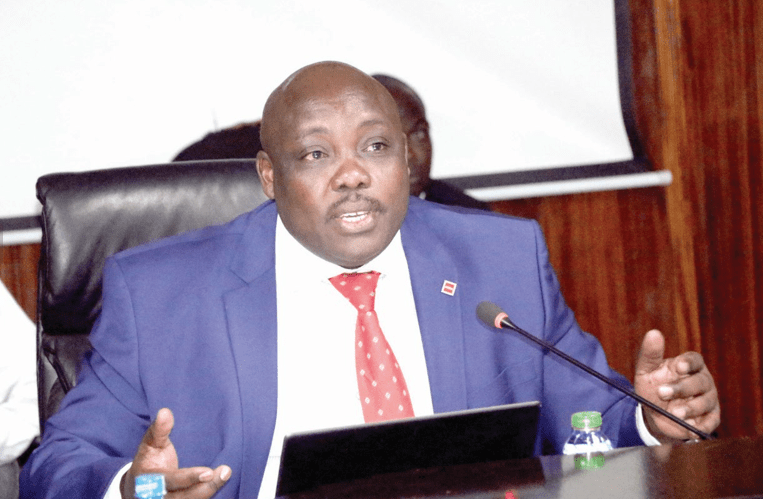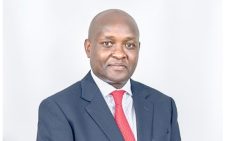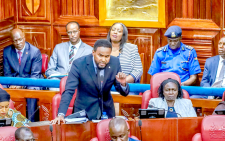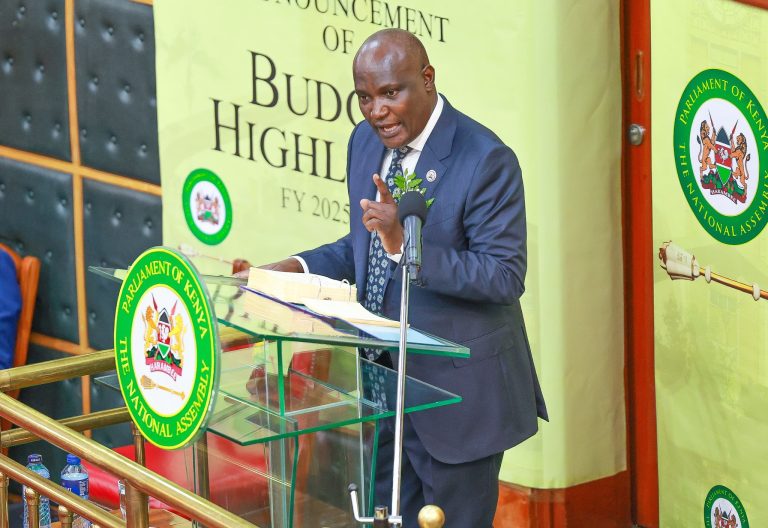Uncertainty at HELB as boss Ringera proceeds on leave

The Chief Executive Officer of the Higher Education Loans Board (HELB) Charles Ringera has been sent packing even as authorities claim that he has only proceeded on normal leave.
The move comes in the wake of a storm over the new university funding model, dubbed the Variable Scholarships and Loans Funding (VSLF) introduced by President William Ruto, which experts say lacks practicability and may not succeed.
There has been an overwhelming uproar from students, lecturers, educationists and parents over the new funding model amid calls for its scrapping.
Insiders at the Ministry of Education, State House and HELB confided to the People Daily that Ringera’s exit is connected to the crisis that is bedevilling the new funding model, which he is said to have been one of the brains behind it.
Sources say fingers are being pointed at Ringera for the confusion engulfing the model, which has seen contracting positions being issued by various government officials, including President Ruto himself and Higher Education Principal Secretary Beatrice Inyangala.
Though HELB chairman Ekwe Ethuro says Ringera has been asked to clear his pending 30 leave days, eyebrows have been raised over the timing of the decision given the fact that the CEO is expected to proceed on the mandatory three-month terminal leave ahead of his retirement in February next year.
Security withdrawn
More questions were raised when Ringera’s bodyguard, official driver and official vehicles were withdrawn immediately after he was served with the letter, a day after he had been locked out of a crucial meeting convened by President Ruto at Eldoret State House over the university funding model.
Ringera, who was asked to begin the said leave on August 22, is scheduled to leave office at the end of February. Ringera is therefore scheduled to finish his 30 pending normal annual leave days around mid-November before commencing the mandatory terminal leave that ends mid-February.
“He has pending annual leave days and after that, he proceeds on the mandatory three-month terminal leave. There is nothing sinister about the leave and neither is it connected to the new university funding model,” Ethuro, former Senate Speaker, told the People Daily on the telephone yesterday.
Acting CEO
Ethuro said Ringera’s position has been taken over by the Chief Operating Officer, Shem Andrew Gichimu, in an acting capacity until a vacancy is declared and the position advertised.
The former Senate Speaker who described Gichimu as an old hand at HELB, defended the move to withdraw Ringera’s official vehicle and driver, saying it is the norm within the civil service for any senior officer on leave to “fully” hand over his office to an acting person for the duration he would be away. He equally defended the new university funding model, describing it as a success and a panacea to the funding crisis facing public universities.
“HELB is not just about the CEO but there is a whole team that runs it, the core of it being the lending and IT teams. In any case, the model has been in operation for two years now, and Ringera’s absence would not affect anything,” Ethuro said.
Reached for comment, Ringera also downplayed the matter, saying it was “a normal leave” before referring us to the HELB chairman.
“As far as I am concerned, it is a normal leave, but you can get more details from the HEB chairman who is mandated to speak over such issues,” Ringera said before hanging up.
But sources told the People Daily that the government decided to send Ringera home before the end of his contract over the fiasco engulfing the implementation of the new university funding model.
Education stakeholders are questioning why the HELB chief executive is being sent on forced leave at a time when the parastatal he is heading is in a crisis that he should be handling.
More concerns are over why the pending leave days cannot be either commuted or rescheduled as he deals with the university funding model crisis. The new funding model has been described by the government as student-centered with scholarships and loans being apportioned to students based on their assessed levels of need.












